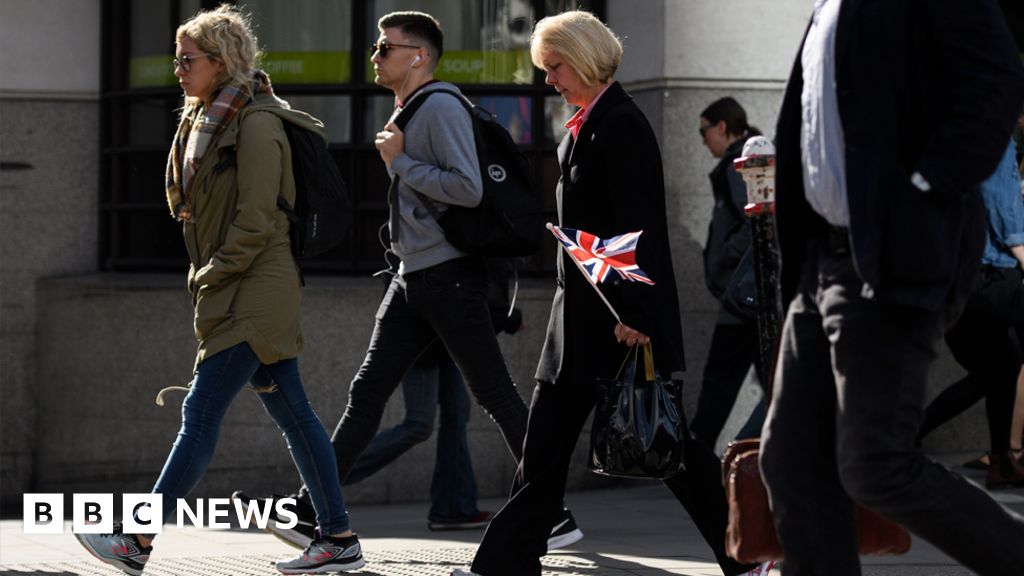image source, Getty Images
Analysts say higher-than-expected government borrowing narrows the window for tax cuts before the election.
According to the Office for National Statistics, government borrowing (the difference between spending and tax revenue) was £120.7bn in the year to March.
This was £6.6bn, lower than the previous year but higher than the government had expected.
The government lowered national insurance in March, but there is talk that it may cut taxes again in the fall.
But Ruth Gregory, deputy chief UK economist at Capital Economics, said: “If the Chancellor was hoping the March numbers would give him more room to cut taxes in the fiscal events later this year, he will have been disappointed.” said.
He noted that the government's interest payments could be higher than expected given the increase in borrowings and the fact that interest rates are no longer expected to fall as quickly as previously expected. This will reduce the scope for governments to meet self-imposed spending rules.
Kara Pashti, senior economist at the Resolution Foundation, a think tank focused on low-income households, said the latest figures suggest there is “no sign that there is room for further adjustments” in the pre-election budget. said.
The Government's independent forecasting agency, the Office for Budget Responsibility (OBR), had predicted that annual borrowing would be £114.1bn.
A general election must be held by the end of January 2025, and there is speculation that the government will try to cut taxes again before voters head to the polls later this year.
The Prime Minister cut National Insurance by 2p in the pound in the spring budget, following a 2p cut announced in last autumn's statement. The OBR estimates that each cut will cost the government nearly £10bn.
Rob Wood, chief UK economist at Pantheon Macroeconomics, said he still expected the chancellor to cut taxes again before the election.
But he added that the next government “will face a difficult choice between raising taxes to improve our cracked public services or preserving the Chancellor's recent tax cuts.”
“We suspect that whoever the next government is will end up imposing at least some tax increases to make ends meet.”
Jessica Barnaby, ONS deputy director general for public sector finance, said government spending had increased by around £58bn over the past year, adding: “This exceeded the average reduction.”
“However, public sector receipts have increased by £66 billion and overall the deficit is still falling,” she said.
The ONS also noted that these were initial estimates of public sector finances for the previous financial year and that the figures would be revised in the coming months.
Borrowing in March alone was £11.9bn, down £4.7bn on the same month last year but still higher than analysts expected.
The total debt the government has accumulated over the years was £2.7tn at the end of March.
This is equivalent to 98.3% of the size of the UK economy, measured in gross domestic product (GDP), and is at the level last seen in the early 1960s, the ONS said.
A Treasury spokesperson said, “The debt has increased in recent years because we rightly protected millions of jobs during the coronavirus pandemic, and after President Putin's invasion of Ukraine caused electricity prices to skyrocket, the debt has increased. “Because I paid half of the cost.”
He added that the government “must stick to its plans for debt reduction.”
Liberal Democrat Treasury spokeswoman Sarah Olney said: “Years of Tory chaos have caused taxes and mortgages to skyrocket in the UK, while borrowing remains out of control. “This is another deadly blow to sexuality.”


